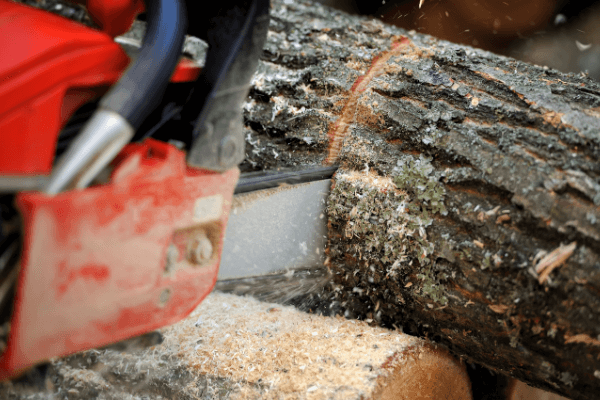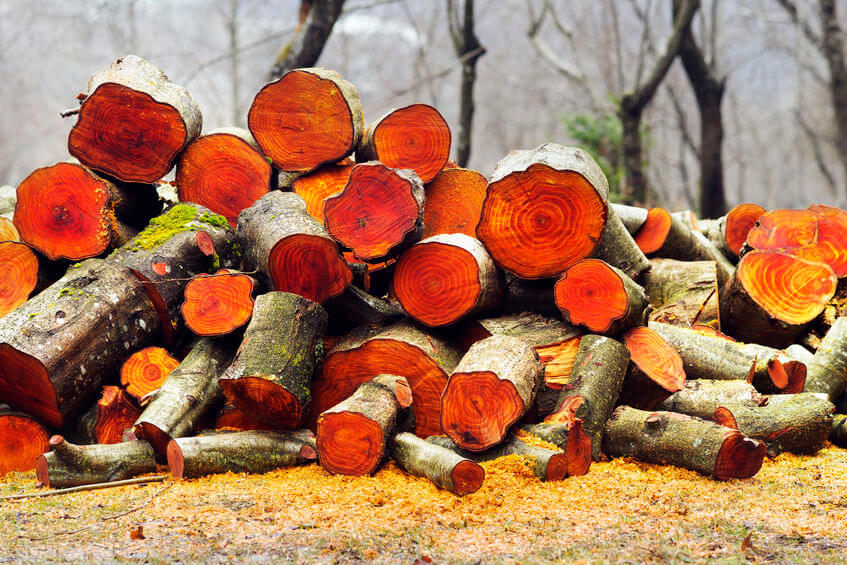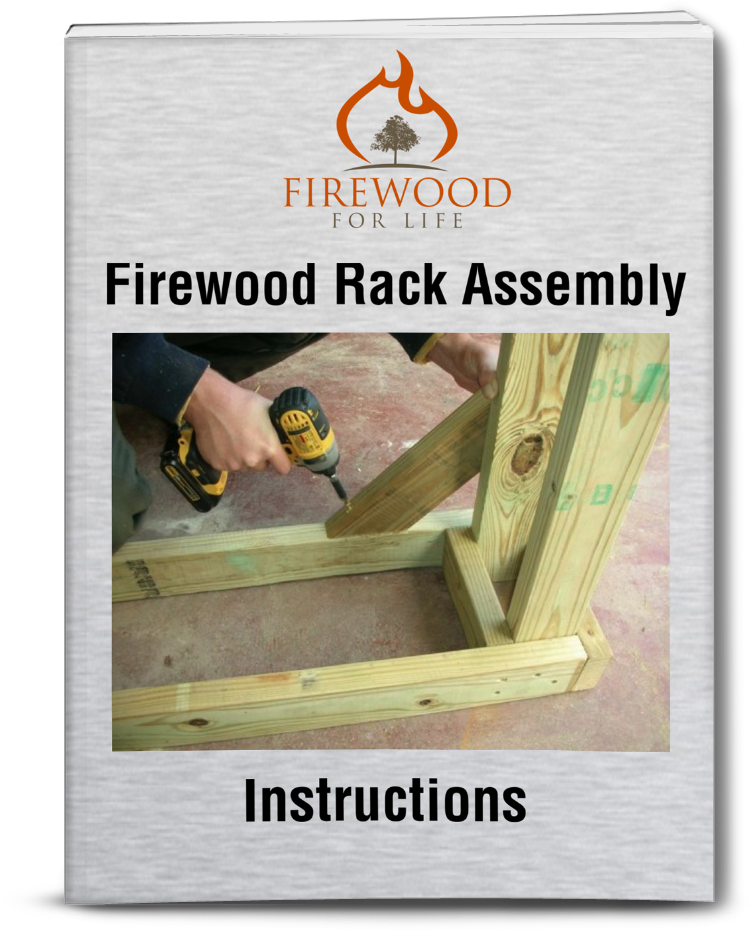- Home
- Cutting Firewood
Cutting Firewood
This post may contain affiliate links so I earn a commission.
With the cost of energy on the rise, many home owners are cutting firewood to heat their homes.
If you decide to heat with wood this winter one question to ask yourself is.......how will I get my firewood?
Well, you basically have two options, cutting it yourself or buying it from someone else.
Cutting firewood yourself can give you a feeling of pride and accomplishment knowing your hard work has contributed to keeping your house warm for a relatively low cost.
However, cutting your own firewood can be exhausting and dangerous, especially if your chainsaw is not cutting straight.
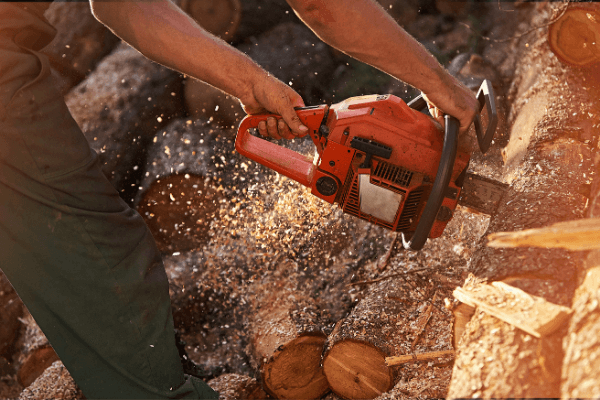
Like they say, cutting firewood should warm you twice.
Once when you cut it and once when you burn it.
Plus, if you've ever experienced a flooded chainsaw that won't start or a saw that won't run because of some other mechanical issues, it's pretty easy to become frustrated.
Buying your firewood is obviously much easier, but it will reduce the amount of money you're saving by burning wood.
I myself have done both.
I always try to cut my winters supply of firewood on my own but sometimes I just run out of time.
Buying a full years supply of firewood can be fairly expensive depending on how much wood you need for the year.
One option is to buy firewood by the semi load and then cut the wood yourself.

Purchasing bulk wood by the semi load is a great way to have access to a lot of wood, especially if you can't cut firewood on your own property.
Plus, the logs delivered on a semi are about 8 feet long, straight, with no limbs so you can cut a lot of wood in a short amount of time.
Read here for tips on cutting firewood by the semi load.
Make Sure You're Safe
Okay, so you've decided to cut you own wood.
The first thing to learn is firewood cutting safety.
After all, your safety is paramount so don't hurt yourself by being unprepared.
Harvesting firewood requires the use of dangerous machinery that could easily cause injury or death.
Knowing how to properly operate the machinery and wearing the right safety equipment can help keep you safe.
Read here to learn more about firewood cutting safety.
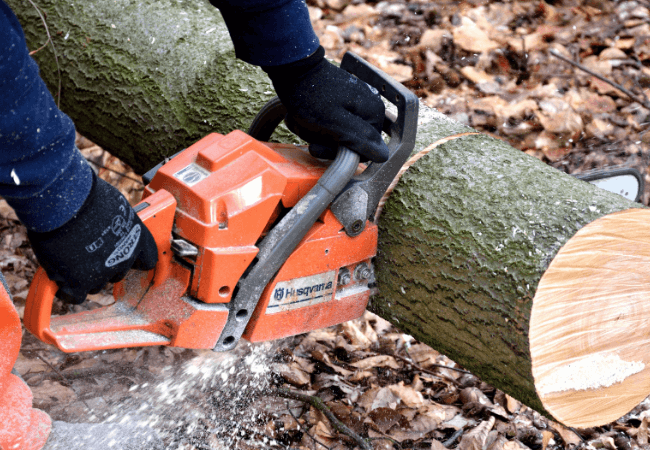
A pinched chainsaw bar is a common problem when cutting firewood that's both frustrating and dangerous.
Typically as you cut up a tree that's laying on the ground into firewood, the weight of the tree will cause the log to close up on your saw......especially when you're making a downward cut.
To prevent this from happening you can pound a plastic wedge into the top of your cut which works great.
Also, read this article that gives a few additional tips to prevent your chainsaw from pinching as you process the log into firewood.
Cutting Firewood - Equipment
The most common, widely used piece of equipment for firewood is the chainsaw.
Chainsaws come in a variety of makes and models.
Choosing the correct chain saw type will depend on how much wood you need to cut and where the wood is located.
Read here to learn more about chainsaw types.
Cutting up a tree is only half the battle.
Once cut, the wood needs to be transported from the woods to your truck or trailer.
Moving the firewood from your storage shed to your home or furnace can also be labor intensive.
A firewood cart can make the process much easier.
Read here to learn more about a firewood cart.
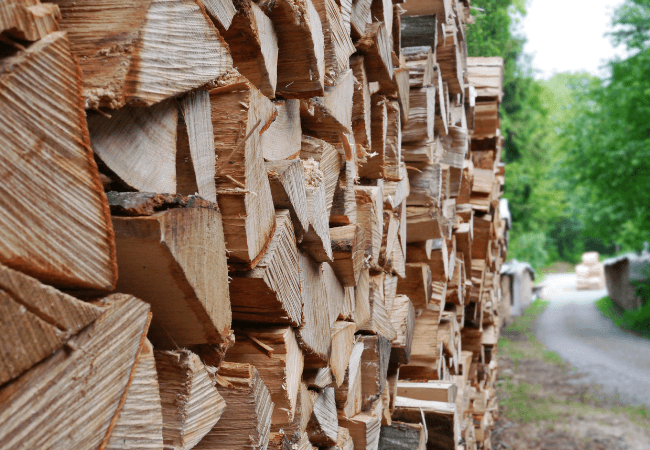
For the serious firewood enthusiast, a firewood processor can produce mass quantities of firewood.
The machines are large and expensive and are not the right choice for everyone.
Read here to learn more about a firewood processor.
Do you handle a lot of firewood or have your own firewood business?
Read here for information about a firewood conveyor.
Cutting The Tree
Felling or cutting a tree can be dangerous and deadly.
Read here for an overview on felling a tree.
Choosing the right tree for firewood is also important.
Which trees make good firewood?
Where can you find firewood that's easy to get to and easy to cut up?
Read here to learn about choosing trees for firewood.
It's not uncommon to cut into a piece of wood and find out it's rotten.
Should you burn rotten firewood?
The answer might surprise you!
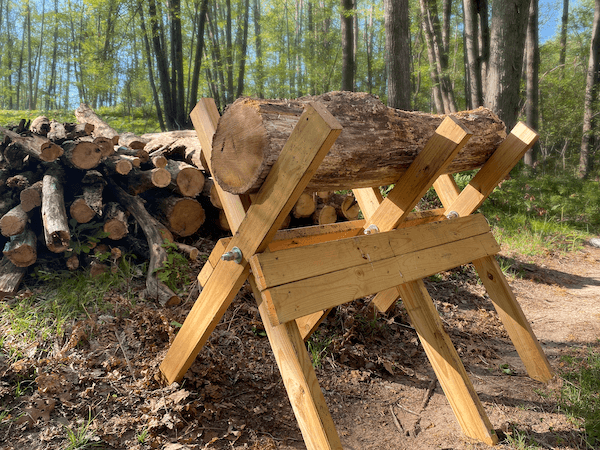
Using a sawbuck will allow you to cut longer logs and limbs into smaller pieces.
The sawbuck elevates to wood off the ground creating a stable base and it prevents your chainsaw from hitting the dirt.
Read here for our sawbuck plans or to make things easier you can download our sawbuck assembly instructions.
Many states also allow you to cut firewood on state and federal land.
This can be a good source for firewood if you don't own property that contains a lot of trees.
Find out what firewood permits are required to cut firewood on state or federal land.
What's The Best Time Of Year For Cutting Firewood?
When's the best time of year to cut firewood?
Typically, most people would agree that harvesting firewood in the spring in the best, but what about the other months?
Can you process firewood in the summer, fall or winter?
Read below to learn the advantages and disadvantages of cutting firewood in each season.
Even though chainsaws are built to last, eventually the parts break over time.
Recently I had a clutch on my Husqvarna chainsaw break, causing the saw to seize up and quit running.
Repairing the problem was easy and only took about an hour.
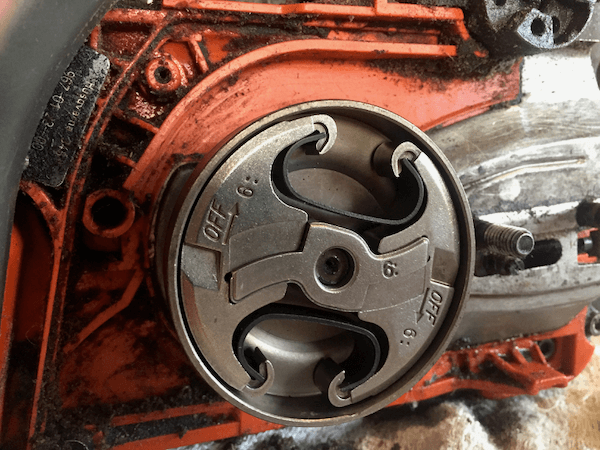
To learn more, read this article that explains how to replace a chainsaw clutch.
As you use your chainsaw the chain will eventually become dull, especially if you hit the dirt with the chain or worse.....a nail in the tree or a rock in the ground.
A bench grinder works great for sharpening a chain, but it requires the removal of the chain which can be time consuming.
Plus, if you're out in the woods and your chain is dull, you can't just plug in a bench grinder and touch up your chain.
Sharpening a chain with a round file is ideal but without using some type of guide or gauge, it's hard to keep the file at the correct angle.
The Husqvarna chainsaw file kit is an amazing tool that will put a sharp edge back on your chain in just a few minutes.
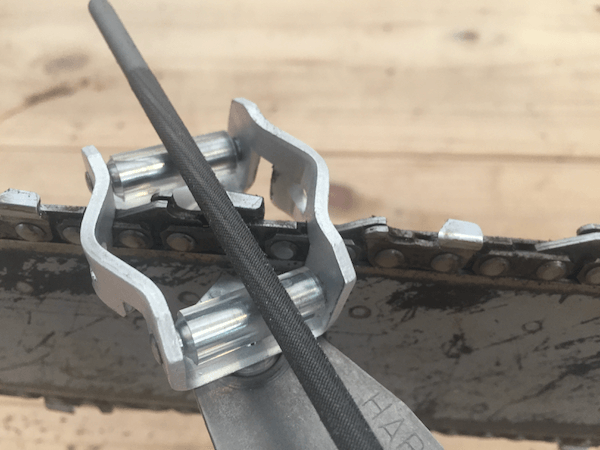
To learn more about this inexpensive but effective device to sharpen your chain, check out our Husqvarna chainsaw file kit review here.
Proper chainsaw chain tension is almost as important as the sharpness of your chain.
A chain that's too tight won't bite into the wood and it also puts too much tension on the tip of your bar and the sprocket which will prematurely ware them out.
A chain that's too loose could derail itself from the saw, potentially cutting your hands or legs.
In order to correctly adjust you saw, read this article that explains how to adjust chainsaw chain tension.
Cutting Firewood - Overall
Cutting your own firewood is a great way to save money and ensure you're heating your home in the most cost effective way possible.
By using some of the tips and techniques found on this page, you'll be able to cut firewood more efficiently, saving you time and money.

About the Author
Obsessed with firewood, Nick is behind over 350+ of Firewood For Life's articles, as well as countless reviews, guides and YouTube videos to help readers like you reduce heating costs and create the perfect fire.
